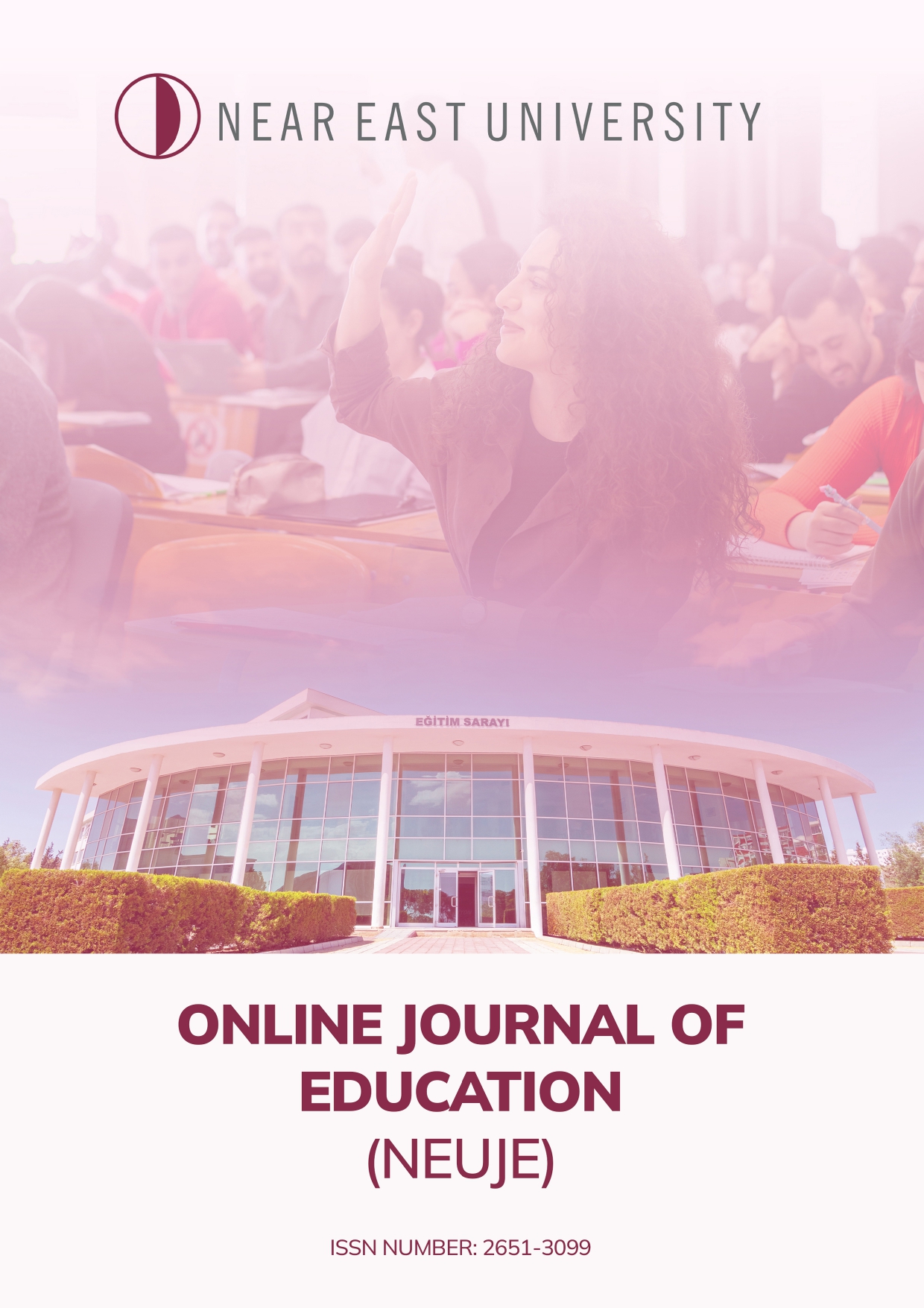The Impacts of Strategies in Teaching on Students’ Performance in School
DOI:
https://doi.org/10.32955/neuje.v5i2.631Keywords:
teaching strategies, students, learning, school in performance, educationAbstract
Teaching strategies are techniques, a teacher’s unique way he teaches to promote the teaching in ways that keep students engaged and learn different skill sets. A teacher may choose a different teaching strategy according to the topic, class level, class size, students’ ability, and classroom resources. There are different kinds of instructional strategies employed by teachers to achieve teaching and learning goals and support different students in achieving effective learning outcomes. This research examines the impacts of strategies in teaching on students’ performance in school. Depending on the case and classroom activities according to teaching strategies, a specific strategy can also be employed to teach a particular skill to a particular student or group of students to have them learn effectively. For example, a teacher could use a combination of computer-based activities, lectures, and group problem-solving to deal with a section of their syllabus. A qualitative research methodology has been used, and an open-ended questionnaire was distributed for the collection of data. Participants of the study, teachers (15) and administrators (15) were selected randomly for both the public and private schools. As teaching techniques improve based on increased knowledge of how students learn, teachers are progressively advancing their teaching strategies in line with evidence-based practices and their student’s learning needs. Inherently, no teacher can use all teaching strategies to fit all individual student’s needs in a class. Rather, he needs to reflect on how to balance the needs of various learners without offsetting the learning practice by trying to be all things to all students to enhance student performance in school.
References
Ayu, M. (2020). Online learning: Leading e-learning at higher education. The Journal of English Literacy Education: The Teaching and Learning of English as a Foreign Language, 7(1), 47-54.
Bal-Taştan, S., Davoudi, S. M. M., Masalimova, A. R., Bersanov, A. S., Kurbanov, R. A., Boiarchuk, A. V., & Pavlushin, A. A. (2018). The impacts of teacher’s efficacy and motivation on student’s academic achievement in science education among secondary and high school students. EURASIA Journal of Mathematics, Science and Technology Education, 14(6), 2353-2366.
Dunn, R., Honigsfeld, A., Doolan, L. S., Bostrom, L., Russo, K., Schiering, M. S., ... & Tenedero, H. (2009). Impact of learning-style instructional strategies on students' achievement and attitudes: Perceptions of educators in diverse institutions. The Clearing House: A Journal of educational strategies, issues and ideas, 82(3), 135-140.
Gustems-Carnicer, J., Calderón, C., & Calderón-Garrido, D. (2019). Stress, coping strategies and academic achievement in teacher education students. European Journal of Teacher Education, 42(3), 375-390.
Guba, E. G. and Lincoln, Y. S. (1994). Competing paradigms in qualitative research. Handbook of qualitative research, 2(105), 163-194.
Harris, D. N., & Sass, T. R. (2011). Teacher training, teacher quality and student achievement. Journal of public economics, 95(7-8), 798-812.
Isa, S. G., Mammam, M. A., Badar, Y., & Bala, T. (2020). The impact of teaching methods on academic performance of secondary school students in Nigeria. International Journal of Development Research, 10(6), 37382-37385.
Lawless, J. L., & Fox, R. L. (2010). It still takes a candidate: Why women don’t run for office. Cambridge University Press.
Metzler, J., & Woessmann, L. (2012). The impact of teacher subject knowledge on student achievement: Evidence from within-teacher within-student variation. Journal of development economics, 99(2), 486-496.
Oludipe, B., & Oludipe, I. D. (2010). Effect of constructivist-based teaching strategy on academic performance of students in integrated science at the junior secondary school level. Educational Research and Reviews, 5(7), 347-353.
Putri, N. R., & Sari, F. M. (2021). Investigating English Teaching Strategies to Reduce Online Teaching Obstacles in the Secondary School. Journal of English Language Teaching and Learning, 2(1), 23-31.
Rusman. (2011). Model-model pembelajaran: Mengembangkan profesionalisme guru. Rajawali Pers/PT Raja Grafindo Persada.
Usman, Y. D. (2015). The Impact of Instructional Supervision on Academic Performance of Secondary School Students in Nasarawa State, Nigeria. Journal of Education and Practice, 6(10), 160-167.
Vo, H. M., Zhu, C., & Diep, N. A. (2017). The effect of blended learning on student performance at course-level in higher education: A meta-analysis. Studies in Educational Evaluation, 53, 17-28.
Weimer, D. L. (2012). Making education research more policy-analytic. In Handbook of education policy research. Routledge.
Published
How to Cite
Issue
Section
License
Authors who publish with this journal agree to the following terms:





